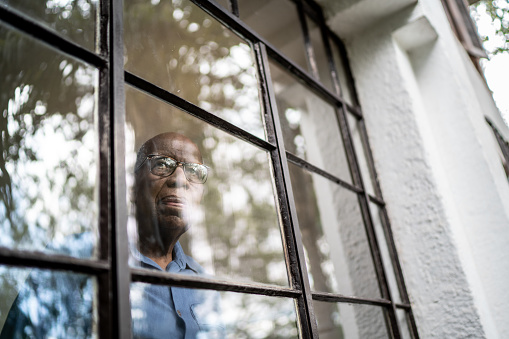Preventing Loneliness in People Tackling Dementia
Article written by guest author Hannah Walters – hannah.walters@contentncoffee.com
Living with dementia shouldn’t mean that you or a loved one has to stop doing the things you or they love. But often a diagnosis of one of the types of dementia, such as Alzheimer’s disease, can leave you feeling unsure about what happens next. Fear of becoming confused while out and about, a loss of confidence, and sometimes depression can lead to a person with dementia shutting themselves away from the world.
As a result, people with dementia can often feel lonely. The Alzheimer’s Society reported that around a third of people living with dementia experience loneliness. However, there are many activities that people living with dementia can get involved with to reduce feelings of loneliness.

Getting Support to Understand Your Diagnosis
You may be tempted to deny or hide your concerns about your diagnosis out of fear of what the future holds. Many support services can help you and your loved ones come to terms with your diagnosis, understand what it means, and provide you with information to help you to continue to live a rich, fulfilled life. Engaging with a dementia support service may help you to realise you’re not alone.
Staying Connected with Loved Ones
In times of need, we all value support from our family and friends through calls, visits, and written messages, be they digital or handwritten. Contact with loved ones is vital to support people living with dementia to feel less lonely and support them in living a fulfilling life. Not only do they often rely on their loved ones to get out and about but seeing a familiar face regularly can be a source of comfort for a person with dementia – even if they can’t always remember their loved one.
Finding a Befriending Service
Not everyone has a friend or family member to meet with them regularly. A befriending service matches you or your loved one with a friendly volunteer, who is available to chat online, over the telephone or face-to-face. Often volunteers for befriending services are trained in dementia support and may be able to help in a wide range of ways, from continuing a favourite hobby to accessing local services and activities.
Working on a Craft or Hobby
Sometimes known as art therapy, working on a craft project or hobby can not only help a person with dementia to occupy their time but can be a useful way for them to express their feelings or thoughts non-verbally.
Take some time to return to an old favourite activity or try a new activity, whether it’s singing, gardening, or pottery! Learning something new can be a great way to improve your mood and help you to meet new people.
Engaging in Reminiscence Therapy
Reminiscence therapy is often used to support people living with dementia. It typically involves talking about things that have happened in the past to tap into existing memories and to help make new memories.
Making a memory box can be a constructive activity for a person with dementia to do with a loved one or carer. It’s a practical, tactile activity that jogs the memory. You can put anything you want into the memory box to tell your story – photos from the past or present or your most treasured possessions. Once the memory box has been made, it’ll become invaluable to trigger memories or as a talking point with loved ones over a cup of tea.
Getting Out and About
Fear of becoming confused or getting lost when out and about can be a deterrent for leaving home. However, getting out in the fresh air help to stimulate your mind, and getting involved in the local community can help reduce isolation.
Increasingly, local communities are embracing the needs of people with dementia, so you can feel confident about joining activities in your local community, like going to the theatre, joining a book club, or taking swimming lessons. Assistive technology can also help you to feel more confident when you go out, such as GPS devices to help show you the way to your destination or movement sensors at home, so that your loved ones know when you get back safely.
You’re Still You
A dementia diagnosis doesn’t define you. You’re still you and with the right support, you can continue doing what you love, learn something new, and stay engaged with friends, family, and your local community to reduce feelings of loneliness.
You can help us to better understand brain health disorders, like dementia. IFA is currently undertaking a Brain Health Study to learn more about the prevention and management of brain health disorders and collate information about the sources people turn to learn about brain health.


